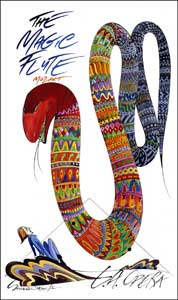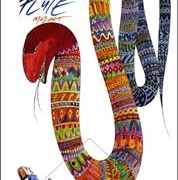Mozart still tops the German pops
mainThe German theatre association has issued its annual results for opera houses across Germany, Austria and Switzerland.
No great surprises.
Magic Flute sold 231,699 tickets, Hansel and Gretel 171,090 and Carmen 142,440.
The most watched modern opera was Britten’s Death in Venice with 20,068 seats sold for three productions.







“The most watched modern opera was Britten’s Death in Venice”
I don’t know how “modern” is defined, but it does somewhat surprise me that Death in Venice is “the most watched modern opera”. I’ve only seen it once in London (ENO, summer 2013), and yet the German-speaking countries have managed to stage it three times in one year!
But it would still be useful to know what counts as “modern”. Is it defined by the date of the work or the date of the composer’s birth or by something altogether more subtle, such as the style of the work? It’s interesting to note, for example, that Britten’s first opera, Paul Bunyan (1941), was composed one year earlier than Strauss’s last opera, Capriccio (1942). Do either, both, or neither of these count as modern? Yet more arresting is the fact that Turandot premiered in 1926 (left incomplete at Puccini’s death in 1924), one year later than the first performance of Wozzeck in 1925. Moses und Aron (1932) is to my ears and mind considerably more “modern” sounding than The Pilgrim’s Progress (1951). So what’s the cut-off for modern operas? Composers born in the 20th century? Or after 1910 or so? Operas premiered later than a certain date? If so, when? The end of the Second World War? 1970? What would be the first modern opera? Punch and Judy perhaps. Or is it to do with compositional techniques employed?